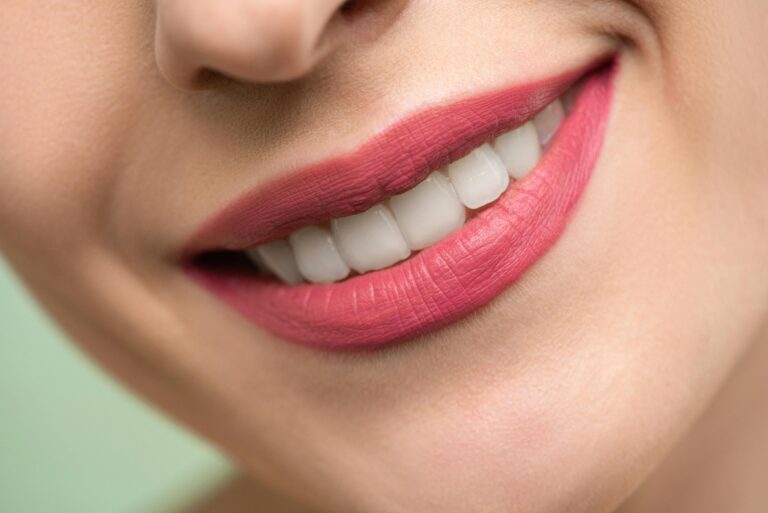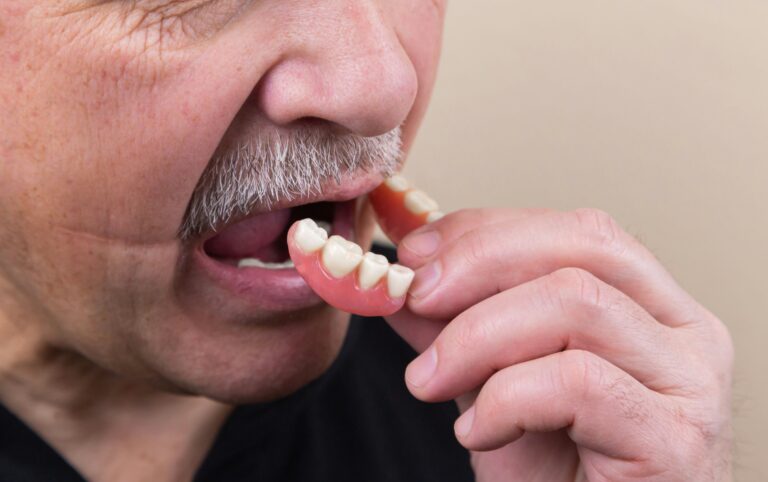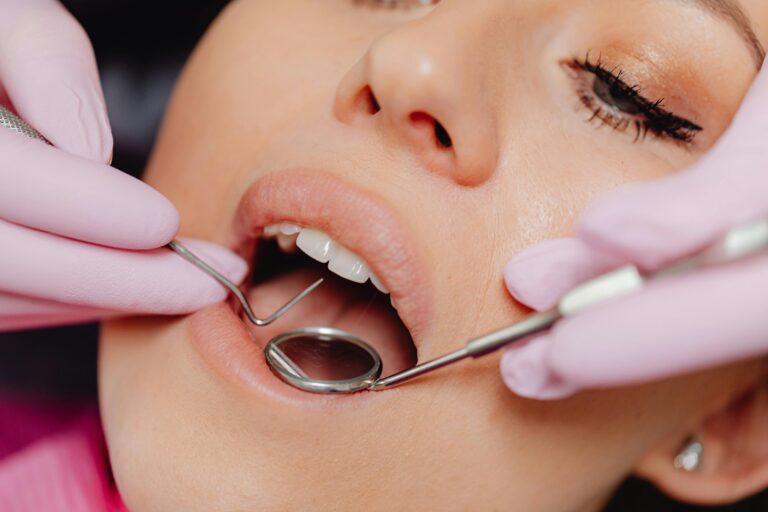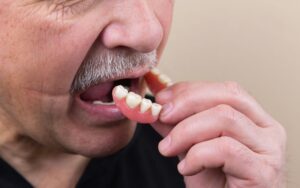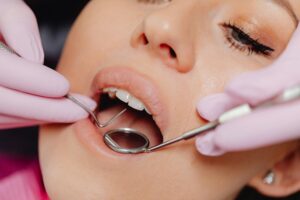Foods to eat and avoid for stronger teeth.
Your diet plays a pivotal role in your overall health. But did you know it also significantly impacts your dental health?
The foods you eat can either strengthen your teeth or contribute to tooth decay. Understanding the connection between your diet and dental health is crucial for maintaining a healthy smile.
In this blog article, we delve into the world of dental health nutrition. We’ll explore the essential nutrients for strong teeth and the foods that provide them.
We’ll also discuss foods and habits to avoid for better dental health. Plus, we’ll offer practical tips for a tooth-friendly diet.
Whether you’re looking to improve your own dental health or instil good eating habits in your children, this guide is for you. Let’s embark on this journey towards better dental health through nutrition.
Understanding the Connection Between Diet and Dental Health
The connection between diet and dental health is well-established. The foods and drinks you consume can either nourish your teeth and gums or contribute to problems like tooth decay and gum disease.
Certain nutrients play a significant role in dental health. These include calcium, phosphorus, and vitamins A, C, and D, among others. Consuming a balanced diet rich in these nutrients can help maintain strong teeth and gums.
The Impact of Nutrients on Teeth and Gums
Calcium, for instance, is essential for tooth strength. It’s found in foods like dairy products, leafy greens, and almonds. Phosphorus, found in eggs, fish, and lean meat, helps protect and rebuild tooth enamel.
Vitamins also play a crucial role. Vitamin A promotes saliva production, which is necessary for cleaning away food particles and bacteria. Vitamin C is important for gum health, while Vitamin D helps the body absorb calcium.
- Calcium-rich foods: Dairy products, leafy greens, almonds
- Phosphorus-rich foods: Eggs, fish, lean meat
- Vitamin A sources: Carrots, sweet potatoes, spinach
- Vitamin C sources: Citrus fruits, tomatoes, peppers
- Vitamin D sources: Sunlight, fortified foods
The Dangers of Sugar and Acid to Dental Health
On the other hand, certain foods and drinks can harm your dental health. Sugary foods and beverages, for instance, contribute to the formation of cavities. The bacteria in your mouth feed on these sugars, producing acids that attack your tooth enamel.
Acidic foods and drinks can also erode tooth enamel. This includes citrus fruits, tomatoes, and carbonated drinks. While these foods have their own health benefits, it’s important to consume them in moderation to protect your teeth.
Essential Nutrients for Strong Teeth
A balanced diet is key to maintaining strong teeth and gums. Certain nutrients are particularly important for dental health. These include calcium, phosphorus, and vitamins A, C, and D.
- Calcium: Builds strong teeth and bones
- Phosphorus: Protects and rebuilds tooth enamel
- Vitamin A: Promotes saliva production
- Vitamin C: Supports gum health
- Vitamin D: Helps the body absorb calcium
Calcium: The Building Block of Strong Teeth
Calcium is a crucial nutrient for dental health. It strengthens the enamel, the hard outer layer of your teeth. Dairy products, leafy greens, and almonds are excellent sources of calcium.
Phosphorus: Partner in Protection
Phosphorus is another essential nutrient for strong teeth. It works with calcium to protect and rebuild tooth enamel. Foods rich in phosphorus include eggs, fish, and lean meat.
Vitamins A, C, and D: The Oral Health Trio
Vitamins also play a vital role in dental health. Vitamin A, found in foods like carrots and sweet potatoes, helps maintain the soft tissues of the gums. It also promotes saliva production, which cleans away food particles and bacteria.
Vitamin C, found in citrus fruits and peppers, is essential for healthy gums. A deficiency can lead to gum disease. Lastly, Vitamin D, obtained from sunlight and fortified foods, helps the body absorb calcium, a crucial nutrient for strong teeth.
Foods to Include in Your Dental Health Diet
A dental health diet is not just about avoiding harmful foods. It’s also about including foods that promote oral health. Here are some foods to incorporate into your diet for stronger teeth:
- Fiber-rich fruits and vegetables
- Dairy and dairy alternatives
- Plenty of water
Fiber-Rich Fruits and Vegetables
Fruits and vegetables high in fibre are great for your teeth. They stimulate saliva flow, which helps protect against cavities. Apples, carrots, and celery are excellent choices.
Dairy and Dairy Alternatives
Dairy products are rich in calcium, which strengthens teeth. If you’re lactose intolerant, consider dairy alternatives like almond milk or soy milk. These often come fortified with calcium and vitamin D.
Water: Nature’s Cavity Fighter
Water, especially fluoridated water, is essential for dental health. It helps rinse away food particles and bacteria. Plus, staying hydrated promotes saliva production, which is crucial for preventing tooth decay.
Foods and Habits to Avoid for Better Dental Health
While it’s important to include tooth-friendly foods in your diet, it’s equally crucial to avoid certain foods and habits. These can contribute to tooth decay and other dental health issues. Here are some things to avoid:
- Excessive sugar, especially in candies and sweets
- Acidic foods and drinks
- Frequent snacking and sipping
The Sticky Truth About Sweets
Chocolates and sweets are often high in sugar, which contributes to tooth decay. Sticky lollies are particularly harmful. They adhere to teeth surfaces for longer periods, increasing the risk of cavities.
The Sour Side of Acidic Foods and Drinks
Acidic foods and drinks, like citrus fruits and soda, can erode tooth enamel. While these foods are not entirely off-limits, moderation is key. Try to limit your intake and rinse your mouth with water after consuming acidic items.
Snacking and Sipping: Timing Matters
Frequent snacking or sipping on sugary drinks can expose your teeth to sugar and acid attacks throughout the day. Try to limit snacking and drink water instead of sugary beverages between meals.
Practical Tips for a Tooth-Friendly Diet
Adopting a dental health diet doesn’t have to be complicated. With a few practical tips, you can easily incorporate tooth-friendly foods into your daily meals. Here are some suggestions:
- Read food labels carefully
- Plan your meals with dental health in mind
Reading Food Labels for Dental Health
Understanding food labels can help you make better choices for your dental health. Look for foods low in sugar and high in fibre and nutrients. Be wary of hidden sugars listed under different names, like fructose or corn syrup.
Meal Planning for Oral Health
When planning your meals, aim to include a variety of foods that promote dental health. Incorporate plenty of fruits, vegetables, lean proteins, and dairy products. Remember, a balanced diet is key to maintaining strong teeth and gums.
The Role of Dental Care in Nutrition
Dental care plays a crucial role in nutrition. It’s not just about what you eat, but also how your body processes these foods. Regular dental check-ups can help ensure your teeth are in good health to perform their functions.
Regular Check-Ups with Your Sandgate Dentist
Regular visits to your Sandgate dentist are essential. They can help detect any potential issues early. Remember, prevention is always better than cure when it comes to dental health.
Personalised Dietary Recommendations from Dental Professionals
Dental professionals can provide personalised dietary recommendations. These are based on your specific dental health needs. So, don’t hesitate to ask your dentist for advice on your dental health diet.
Embracing Dental Health Nutrition for a Brighter Smile
Embracing dental health nutrition is a step towards a brighter smile. It’s about making informed dietary choices that promote oral health.
Remember, a healthy diet is just one part of dental care. Regular check-ups with one of our friendly team at Sandgate Family Dental are equally important. So, take a holistic approach to your dental health.



